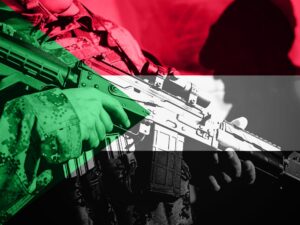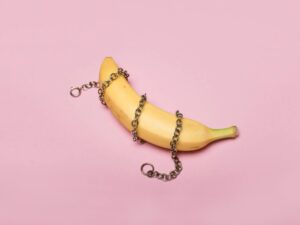The EU Court of Justice (CJEU) recently ruled on the cases brought by two Muslim women in Germany who were suspended from their jobs for wearing a headscarf or hijab.
This ruling means that companies in the European Union can now ban employees from wearing a hijab under certain conditions, which some might view as endorsing discrimination.
In its judgement, the court stated that “A prohibition on wearing any visible form of expression of political, philosophical or religious beliefs in the workplace may be justified by the employer’s need to present a neutral image towards customers or to prevent social disputes.”
A previous ruling by the same court in 2017 caused controversy at the time, as it stated that companies could ban staff from wearing Islamic headscarves and other visible religious symbols under certain conditions.
Both judgements seem to favour the commercial belief of the employer, with little to no regard for the religious beliefs of the employee – in this case, the female employee.
Such is the mentality of the EU court.
This kind of decision legitimises structures of racism, bigotry and anti-Muslim hatred – that tells ordinary people it’s fine to treat Muslim women differently.
I know because I have been a victim of the words “F****** Muslim Whore” and more recently on public transport.
In Europe from Switzerland, Belgium to France whether it’s the burqa ban or burqini ban on beaches – this is an indicator of the rise of fascist and racist rhetoric.
In Tower Hamlets, the Muslim population makes up approximately 37% of the population, so it is hard to imagine a situation where a customer could consider that a woman wearing a hijab was not presenting a neutral image, especially as the customer is very likely to be a Muslim woman – wearing a hijab.
In my borough, better known as the East End of London, there has always been a cultural blend of faiths and races, be they Huguenot refugees in the 17th century, the Irish silk and linen weavers, Ashkenazi Jews fleeing pogroms in the 1880s or, more recently, Bangladeshis.

We have always been one community with multiple beliefs; a blended community that lives in harmony most of the time and embraces the beliefs of its neighbours. It is a community that proves that you do not have to practice the same religion, or agree with others’ opinions in order to get along. Community cohesion is the heart of a thriving Tower Hamlets.
Reflecting the inner tensions of the European Union, which have always existed, the EU Court of Justice decision now needs to be considered by every member state before it can become law.
Women who wear the hijab, such as myself, and anyone who believes in the freedom of religious expression, should ensure they fully engage in the subsequent national debates.
We will not be presenting a ‘neutral image’ to any court.
In a society where most companies have to include diversity and inclusion in their policies, it is regressive to actively discriminate against someone in this way. After all, as the CIPD says, “Promoting and supporting diversity in the workplace is an important aspect of good people management – it’s about valuing everyone in the organisation as an individual.”
In one case, a childcare worker who wore the hijab was told that she should “abide by a strict requirement of religious and political neutrality in order to guarantee the ‘free development’ of children.” However, this implied that such workers would be forcing their beliefs onto their charges, which is nonsense. By shielding children from the diversity in our world, they are more likely to grow up with blinkered views and limited understanding of diverse cultures. Neutrality can actually foster a lack of understanding and discrimination.
Suppression of beliefs can do more harm than good and can make those affected feel excluded and invisible. This can have a knock-on effect and make employees feel alienated and that their opinions don’t matter. The aim of any organisation, first and foremost, should be to create a culture of inclusiveness and embrace the individual identities of its workforce. A company’s reputation for being diverse and inclusive will help it attract top talent and retain motivated employees.
And this is the point. Despite all the recent movements to combat racism and promote the message that the rights of minorities matter, this ruling is doing just the opposite.
It is taking choice away.
Hijab – The greatest tragedy is for those who are never able to have a choice, so we make the choice because it is ours to make.
















